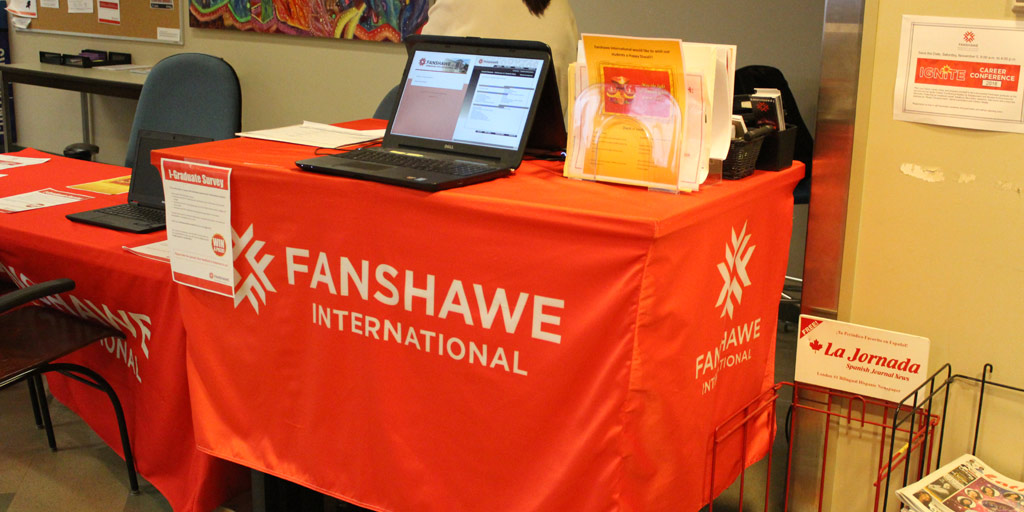Home away from home: Challenges of studying out of the comfort zone
 CREDIT: ADEPEJU AGNES ADESINA
CREDIT: ADEPEJU AGNES ADESINAFanshawe International Center tries to make the transition for international students as seemless as possible.
The importance of education cannot be over emphasized in either developing the mindset or in helping to achieve a greater goal in a community or country.
But when thinking of acquiring the kind of knowledge and pursuing a career that one has always dreamed of as a kid, the challenges that come with it are usually overlooked.
It can be overwhelming having to be in a space with different people of different beliefs, attitudes, culture, social background and opinions.
Fanshawe welcomes students from more than 60 countries around the world; suffice it to say, some international students have been able to quickly weigh both the studying and social aspect of being a student at Fanshawe while some find it rather difficult to mingle.
According to a poll conducted in the halls of Fanshawe, 45 per cent of the international students at Fanshawe find it a little bit difficult to either socialize or explore exciting places in London.
“[I do not have my] parents out here, no home-country kind of food and the social life is hard,” said Majid Natara, a student at Fanshawe who is originally from India, who is not sure if there is any food here in Canada that can taste exactly like the type he is used to.
He further explained that though there are stores that he can purchase these food items from, they are either too expensive or too difficult to locate.
Natara isn’t the only international student to feel pessimistically about their social life at Fanshawe; Michael Sulemon, a Fanshawe student from Liberia, shares similar sentiments as Natara.
When asked how studying at Fanshawe has been so far, Sulemon replied, “Pretty good, Fanshawe is one of the best colleges here in Ontario and unlike back in Liberia, it is great here and life is very different.”
Sulemon however feels indifferent about his classroom relationship with the other students.
“I am the only African in my class. The Indians walk in groups and also the Canadians, but I am always alone and it feels as though, I am left out. This is a very big challenge for me.”
As an international student, it is extremely important to make friends. This is just a simple solution to curing the ‘sickness’ that comes with living so far from where you are originally from. Moving to a new country where you don’t know anyone and have English as a second language can be a difficult transition; the adjustment is different for everyone though. When speaking to Victoria Darryl, an international student at Fanshawe, she said, “I have not made many friends and maybe it is because I am not form the big city.”
Luckily Fanshawe International Centre is here to make the transition for students easier.
According to student ambassador with the International Centre, Minkyung Kim, they are there to answer any questions be it about study permits, about their programs or anything going on around the school.
“We are just trying to help them as much as possible.”














